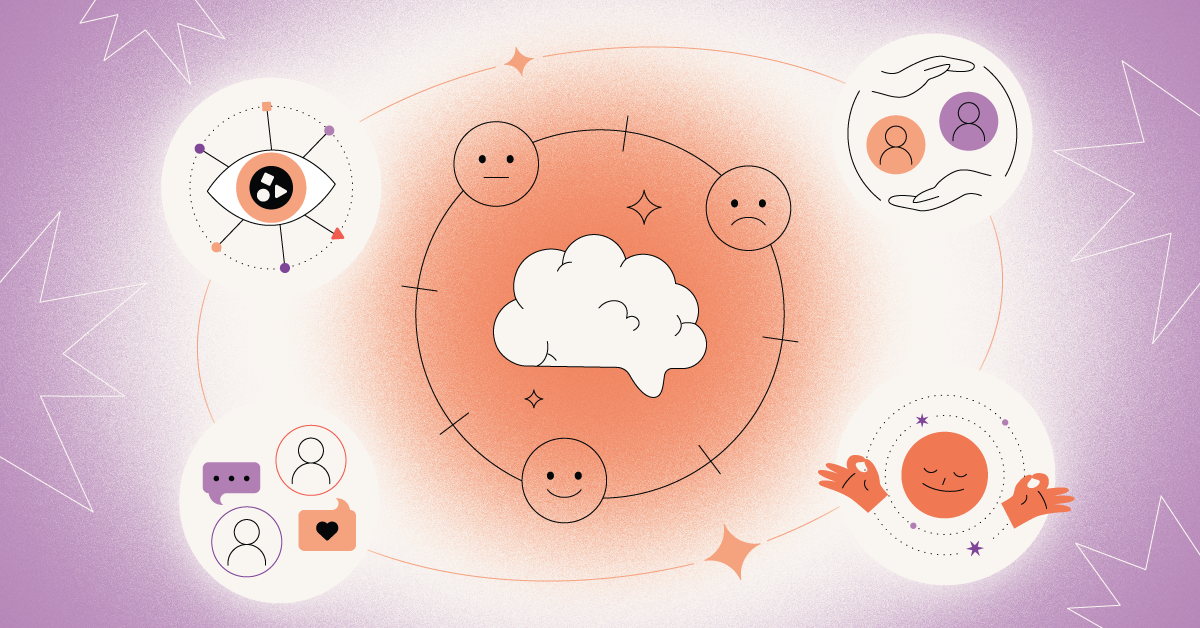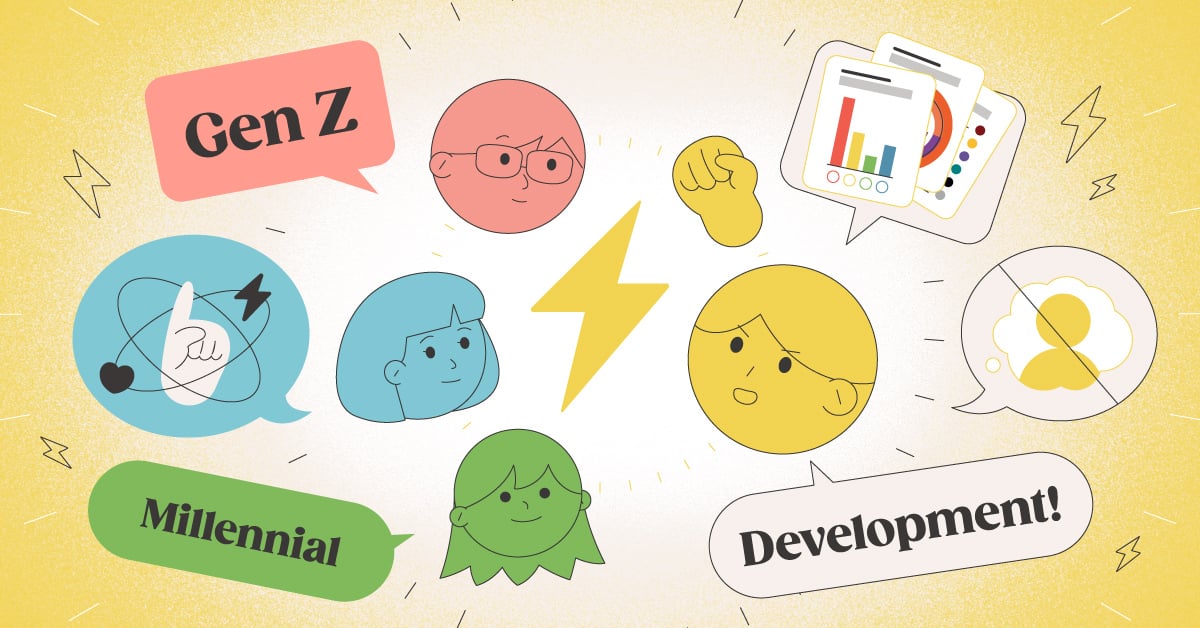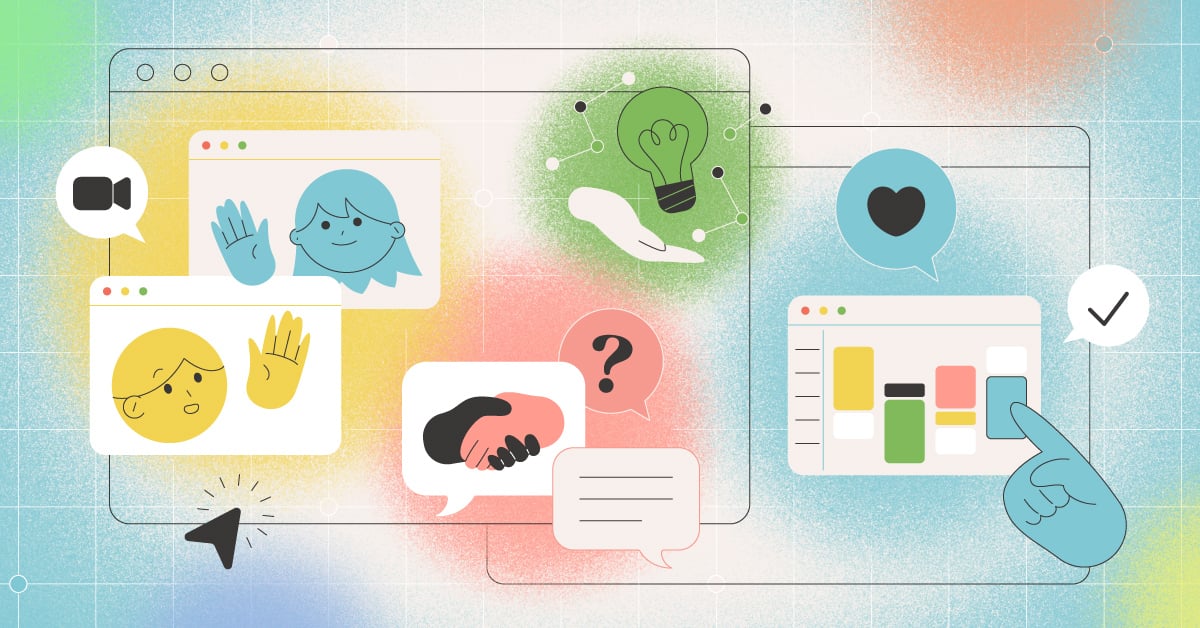
Difficult situations are inevitable in life, but how you handle that adversity can make the difference between being weighed down or growing from hard times.
One of the best ways to do that is by harnessing the power of emotional intelligence (EQ). Here are a few of the ways developing EQ can help you overcome adversity.
Emotional Intelligence Improves Self-Awareness
The first of five dimensions of EQ is self-awareness, which is crucial to developing your emotional intelligence. It’s “a foundational skill that the other factors build off of; if you don’t have self-awareness, it’s very difficult for you to understand and regulate your own behavior,” we’ve shared.
Self-awareness will help you get clarity. When you can ask critical questions about your difficult situations, you might find solutions in unexpected places.
- Are your behaviors or actions contributing to the issue at hand?
- How are you responding to the problem?
- Who can you reach out to for help? Who should you trust? Who should you guard yourself around?
Developing your self-awareness will help you make better choices and judge situations more clearly — it helps fortify the decision-making process.
Emotional Intelligence Strengthens Self-Regulation
Self-regulation is “the ability to control or redirect disruptive impulses and moods and the propensity to suspend judgment and think before acting.” It’s the second factor of EQ, and it contributes significantly to your success when navigating challenging situations.
If you can manage stress, anxiety, and negative emotions more adeptly, you can make better decisions under pressure and maintain your composure. This self-regulation will also affect how others view you — they will be impressed by your calm and rational responses. Techniques such as mindfulness, deep breathing, and positive self-talk can help develop self-regulation.
Emotional Intelligence Helps Develop Empathy

Empathy is the ability to understand the feelings of others. It’s not sympathy, which is based on feelings of pity, but a true effort to put yourself in someone else’s perspective to understand their experiences and emotions.
“Empathy is sometimes described as ‘feeling with’ someone,” shared Forbes. “The capacity to be aware of emotions — and express your own in a way that’s measured, useful, and appropriate — is central to leadership success.”
Focusing on EQ and empathy can help you foster stronger interpersonal relationships, which can be really helpful during crisis situations. The more people you have in your support system, the easier it will be to triumph over adversity.
Focusing on empathy also models supportive behavior, showing others the way you want to be treated during hard times. If people are used to respectful and constructive interactions with you, they might be more likely to extend empathy to you when times get hard.
Emotional Intelligence Aids Adaptability
Emotional intelligence can help you adapt to difficult situations more quickly and efficiently. If you are aware of your emotions and behavior and are treating others in a way you can stand behind, you are already ahead of the game.
You will be able to handle changes more easily when you have a strong bastion of internal support. Focused EQ allows you to navigate unexpected challenges with creativity and resilience; it can even help you adapt your behavioral style as needed.
Use EQ to quickly assess the situation, adjust your approach, and find innovative solutions to overcome obstacles.
Emotional Intelligence Boosts Social Skills
Developing emotional intelligence helps improve interpersonal communication, conflict resolution, and collaboration skills. It can help you communicate your needs more clearly, assert yourself respectfully, and negotiate solutions to complex problems.
By developing your social skills and making more connections, you can build a support system that will help you overcome adversity. The National Library of Medicine shared that, “Social support is exceptionally important for maintaining good physical and mental health…support of high quality can enhance resilience to stress, help protect against developing trauma-related psychopathology, decrease the functional consequences of trauma-induced disorders, such as posttraumatic stress disorder (PTSD), and reduce medical morbidity and mortality.”
Those benefits are huge! By using EQ to make genuine connections and develop a support system, you will be able to leverage the strengths of others when you’re having a hard time. The great thing about developing EQ is that, when members of your support system are in need, you’ll have the tools to support them, paying it forward and strengthening those bonds.
Overcome Adversity With Emotional Intelligence
In times of adversity, emotional intelligence serves as a guiding light, empowering individuals to navigate challenges with resilience, empathy, and adaptability. By honing self-awareness, self-regulation, empathy, adaptability, and social skills, individuals can build a strong foundation to overcome adversity and thrive in the face of uncertainty.
As we continue to develop our emotional intelligence, we not only enhance our own capacity to overcome challenges but also contribute to a more supportive and compassionate world. Embracing the power of emotional intelligence is not just a personal journey — it's a pathway to collective resilience and growth.
If you’re inspired to learn more about overcoming adversity, you need to know about Anthony Robles, one of the keynote speakers at Forty Forward. Get the info you need here.




